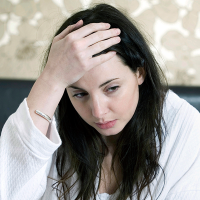Migraines and Caffeine

Migraineurs have a love-hate relationship with caffeine. For many, the vasoconstrictor helps alleviate their migraine pain. For an equal number, the chemical is a migraine headache trigger. The relationship between caffeine and migraines is anything but straightforward.
For caffeine addicts who discover that their daily cuppa is a migraine trigger the problem of caffeine is particularly thorny. People who regularly consume large quantities of caffeine often experience withdrawal headaches if they do not get their regular java jolt. If they are predisposed to migraines, the headache they get if they cut out the caffeine is going to be a doozy. Many people think caffeine withdrawal alone can bring on a migraine. Regular caffeine-aholics are advised to lower their caffeine intake slowly so they do not send their body into withdrawal.
Many migraine pain relievers include caffeine. The vasoconstrictive action of caffeine helps relieve migraine pain for some people. One current theory of what exactly goes on in the head during migraine proposes that arteries in the temple get inflamed during an attack and vasoconstriction would reduce the inflammation. Another possible reason to include caffeine in a migraine medication is because it acts as a supplement to the main analgesic. Studies have shown that many analgesics function more efficiently and pack a greater punch when paired with caffeine, though no one is sure exactly why.
Caffeine shows up in many unexpected places, so migraineurs who are sensitive to it (not all are) need to be vigilant label readers. Everyone knows about beverages, things like coffee and colas. Caffeine is also found in many clear or fruit-flavored sodas. Caffeine can be found in chocolate; the darker the chocolate the more caffeine it contains. Caffeine is in many over-the-counter analgesics, and not always clearly labeled. Migraineurs should be especially warty of caffeine in over-the-counter migraine formulas of regular medications.


